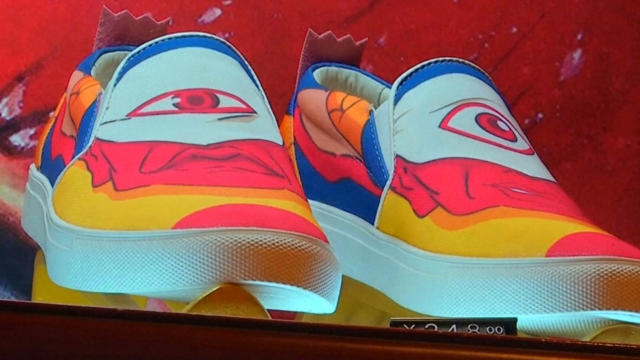One shoemaker in Beijing proves as resilient as its footwear. It’s a craft dating back centuries — shoemaking.
And one Beijing business has proven to be just as durable as its footwear.
CGTN’s Frances Kuo shows us what makes its shoes so special.
It’s not obvious from the outside just how unique this place is – one of China’s oldest shops selling cloth shoes.
“The making of a handmade shoe like this takes almost 100 steps in the whole production process, and each step is finished by hand,” explains shoemaker Cai Wenke.
The business started in 1853. The shoes were first designed for court nobility, and from that, its name of “Neiliansheng” was born.
“The shop founders were thinking of a name for the shoe shop, because at that time the shop was mainly open for the officials in the imperial court, they called it ‘Neiliansheng.’ ‘Nei’ means the ‘court’ while the ‘liansheng’ means if guests wear shoes their career can go up three grades,” said Cai.
That certainly has been true for some famous people on the client list including Mao Zedong, Deng Xiaoping and Jackie Chan.
There’s a reason the shoes are so popular – it’s because of the painstaking work that goes into them. Cai Wenke learned the trade about 10 years ago.
The footwear is made with more than 40 types of tools.
The material is formed from 35 layers of cotton interwoven with hemp thread in a criss-cross fashion.
The most intricately-made shoes require more than 4,000 stitches.
“Wearing these shoes can absorb sweat, keep the feet in good health and maintain the feet’s breathability,” said Cai. “Also, we are using top quality material. We are using brand new fabric. The glue is made of the same flour we can eat. We mix the flour with boiling water and stick the shoes together with that.”
It takes up to five days to finish a pair. The shoes are all based on the same original design – but with more than 300 varieties.
“Now we choose the style, material and pattern based on the need from the youngsters, and we cooperate with famous movies and TV shows. The products we design are loved by a lot of young people,” said Cai.
Some of the modern flares include feathers and pearls favored by Chinese opera performers.
Basic designs cost about $20 a pair; custom styles can run up to a couple hundred dollars.
The business has proved as resilient as its shoes, able to withstand competition from more well-known international brands.
The shoes have even made their way into an old Beijing saying that goes: “Step in shoes by Neiliansheng, and you will see good fortune at your job.”
There’s no concrete evidence of that, but if they were good enough for the royals, they’re probably good enough for us.
Bill Ivey talks about the challenges of preserving intangible cultural heritage
CGTN’s Mike Walter talks with Indiana University, Visiting Scholar Bill Ivey about the challenges of preserving the intangible cultural heritage of societies around the world.
 CGTN America
CGTN America

